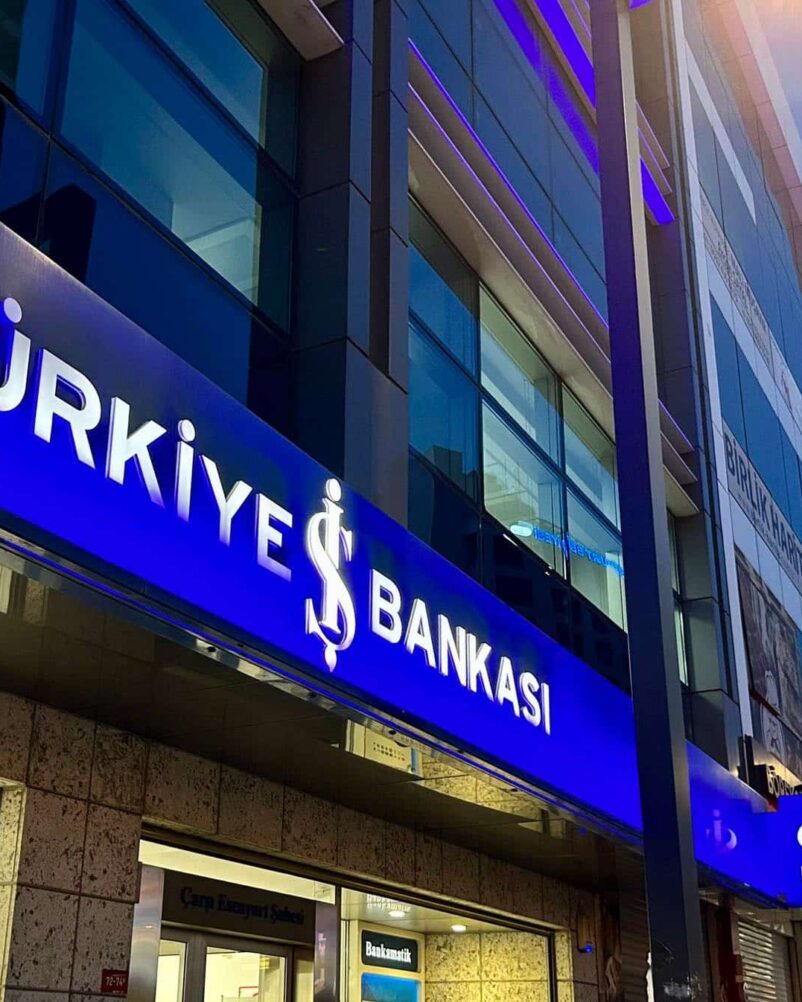ads
Understanding How Turkish Banks Evaluate Loan Applications Can Improve Your Chances of Securing Better Terms
In this guide, we explain the key evaluation criteria, how the Findeks score works, and the standard steps required to apply for a loan in Turkey.
You’ll learn about the regulations set by the Banking Regulation and Supervision Agency of Turkey (BDDK), the required documents, the factors that increase or decrease your credit risk, and strategic tips to strengthen your profile before applying for financing.
Classic Stages of the Loan Evaluation Process
1. Pre-Registration
Collection of identity information (Kimlik) and contact details.
2. Income Assessment
Submission of payslips, bank statements, or revenue declarations (for self-employed applicants).
3. KKB Credit Bureau Check
Review of your Findeks credit score, overdue debts, and any protested bills or defaults.
ads
4. Payment Capacity Calculation
Banks typically limit the monthly loan installment to around 40% of your net monthly income.
5. Internal Risk Classification
Each bank uses a proprietary algorithm to assess your history, guarantees, and professional profile.
6. Conditional Offer
A preliminary offer is made, defining the loan amount, repayment term, and interest rate. A guarantor or real collateral may be required at this stage.
7. Contract Signing and Registration
The loan agreement is digitally signed and registered within the bank’s system, with notification sent to the KKB (Credit Bureau of Turkey).
Main Factors Evaluated by Turkish Banks
| Factor | Average Weight | Practical Notes |
|---|---|---|
| Payment Punctuality | High | Delays over 30 days significantly reduce your credit score. |
| Debt-to-Income Ratio | High | Total debts exceeding 50% of your income raise red flags for lenders. |
| Bank Relationship History | Medium | Long-standing and actively used accounts suggest financial stability. |
| Collateral (Property, Vehicle) | Medium | Helps lower lender risk and allows for better rates or longer terms. |
| Employment Sector & Stability | Low–Medium | Public sector jobs or long-term contracts are viewed more favorably by lenders. |
Commonly Required Documents
• Kimlik (Turkish ID) or passport (for foreign residents)
ads
• Recent proof of address
• For salaried employees: last three pay slips or SGK employment declaration
• For self-employed applicants: six months of bank statements and income tax declaration
• For secured loans: property deed or vehicle documentation
• Consent for credit inquiry via KKB/Findeks
Evaluation Timeframes
| Institution | Standard Loan | Secured Loan (Property) | Notes |
|---|---|---|---|
| Digital Banks | 15 minutes – 24 hours | 2–4 business days | Fully online process |
| Major Banks | 24 hours – 3 business days | 3–7 business days | May require on-site asset appraisal |
| Credit Cooperatives | 2–5 business days | 5–10 business days | Approval must pass internal board |
Strategies to Improve Loan Approval
• Pay off or renegotiate overdue debts before applying for new credit
• Consolidate your salary income into one bank account to show stable cash flow
• Avoid multiple credit inquiries in a short period—this may signal financial distress
• Offer collateral (real estate, security deposit) to reduce perceived risk
• Maintain an emergency fund—a healthy average balance supports liquidity analysis
Loan Costs and Interest Structure (Overview)
Fixed Rate: Common for personal loans; ensures consistent monthly payments
Variable Rate: Indexed to the Central Bank of Turkey (TCMB) rate; more typical in long-term mortgages
Additional Charges:
• Loan origination fee
• Credit protection insurance (optional or mandatory)
• Local financial transaction taxes

Risks and Considerations
• Over-indebtedness: High installments may strain your budget; it’s advisable to leave 60% of income for other expenses
• Late Payment Penalties: Daily interest applies; defaults are reported to KKB after 90 days
• Early Maturity Clauses: Severe breaches may trigger full debt acceleration
• Promotional Rates: Confirm whether low rates apply only for initial months or the entire contract duration
Summary of Key Benefits
- ✅ Digital processing speeds up loan approvals
- ✅ Transparent Findeks score lets you track and adjust financial behavior
- ✅ Collateral options reduce interest rates for asset owners
- ✅ Loan portability allows refinancing with better conditions at other banks
- ✅ Simulation tools help plan realistic installments before applying
Updated FAQs
How can I check my Findeks score?Visit the KKB portal, pay the inquiry fee, and access your full credit report.
Can I get a loan with a low credit score?Yes, but expect higher interest rates or additional requirements like a guarantor or collateral.
Can foreign residents apply for loans?Generally yes—by presenting a passport, residency permit, and proof of local income.
How long does it take for my score to improve after paying off debt?Usually a few months, as KKB updates records and recalculates your score periodically.
Is early repayment allowed without penalties?It depends on the loan contract—some banks charge a fee, while others offer interest reductions as an incentive.
Conclusion
Credit analysis in Turkey follows a well-structured system aligned with Central Bank guidelines and overseen by the Banking Regulation and Supervision Agency (BDDK). The Findeks score acts as a key indicator, directly influencing the loan terms offered to each applicant.
To secure approval with competitive interest rates, it’s essential to maintain a strong financial reputation, keep your debt levels low, and present clear documentation proving your income and financial stability.
By understanding the factors assessed—payment punctuality, debt-to-income ratio, collateral availability, and employment history—you can implement effective strategies to improve your credit profile, negotiate better terms, and lower your long-term loan costs.
In this way, access to credit becomes a powerful tool for achieving personal goals, grounded in responsible practices that prevent default and support long-term financial health.


